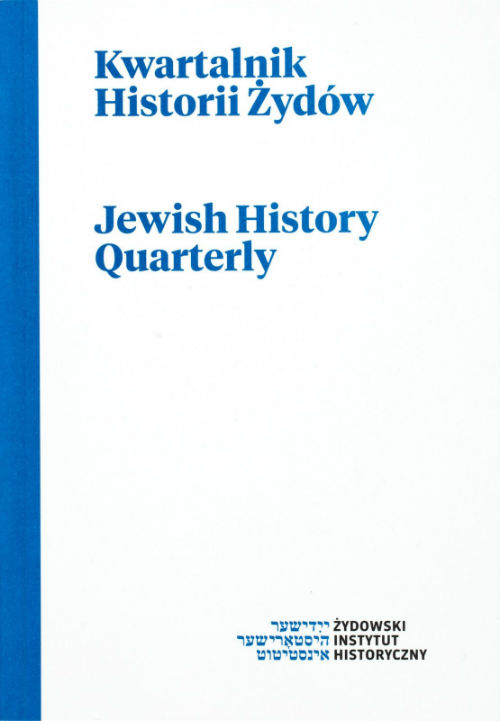Sprawozdanie z okazji dwulecia istnienia Centrali Żydowskich Rad Starszych Górnego Śląska
Report on the two years of operation of the Head Office of Jewish Council of Elders of Eastern Upper Silesia
Author(s): Aleksandra NamysłoSubject(s): History
Published by: Żydowski Instytut Historyczny
Keywords: Centre of Jewish Council of the Elders of Eastern Upper Silesia; Moshe Merin; Zagłębie ghettos; salvation through work
Summary/Abstract: The Head Office of the Jewish Council of the Elders of Eastern Upper Silesia was active in the years 1940-1943 organising the life of the Jewish community of Dąbrowa Górnicza area and part of Upper Silesia. In October 1940, it controlled 34 communities having 96,283 Jewish inhabitants between themselves. Its chairman was Moshe Merin, an advocate of the concept of saving the Jewish population from extermination through work for the benefit of the Germans. Merin was telling the Jews to obey the German authorities and conscientiously carry out their orders, discouraging them from acting without his knowledge, contacting the “Aryans” or conspiring against the Germans. The years 1940–1941 were successful for Merin and his programme. The absence of a clearcut German policy toward the Jews or of massive anti-Jewish actions during that period, which translated into their stable position in terms of subsistence compared to the General Gouvernement land, resulted in a growth of confidence of the Jewish population in the Head Office’s policies. Merin’s position was weakened in the summer of 1942, after the deportations of the Jews and the establishment of ghettos in Będzin and Sosnowiec. The operations of the Head Office took a hit when its leadership was taken to Auschwitz in June 1943, and the liquidation of the region’s ghettos, which started on 1 August 1943, put an end to it.
Journal: Kwartalnik Historii Żydów
- Issue Year: 215/2005
- Issue No: 03
- Page Range: 386-402
- Page Count: 17
- Language: Polish

